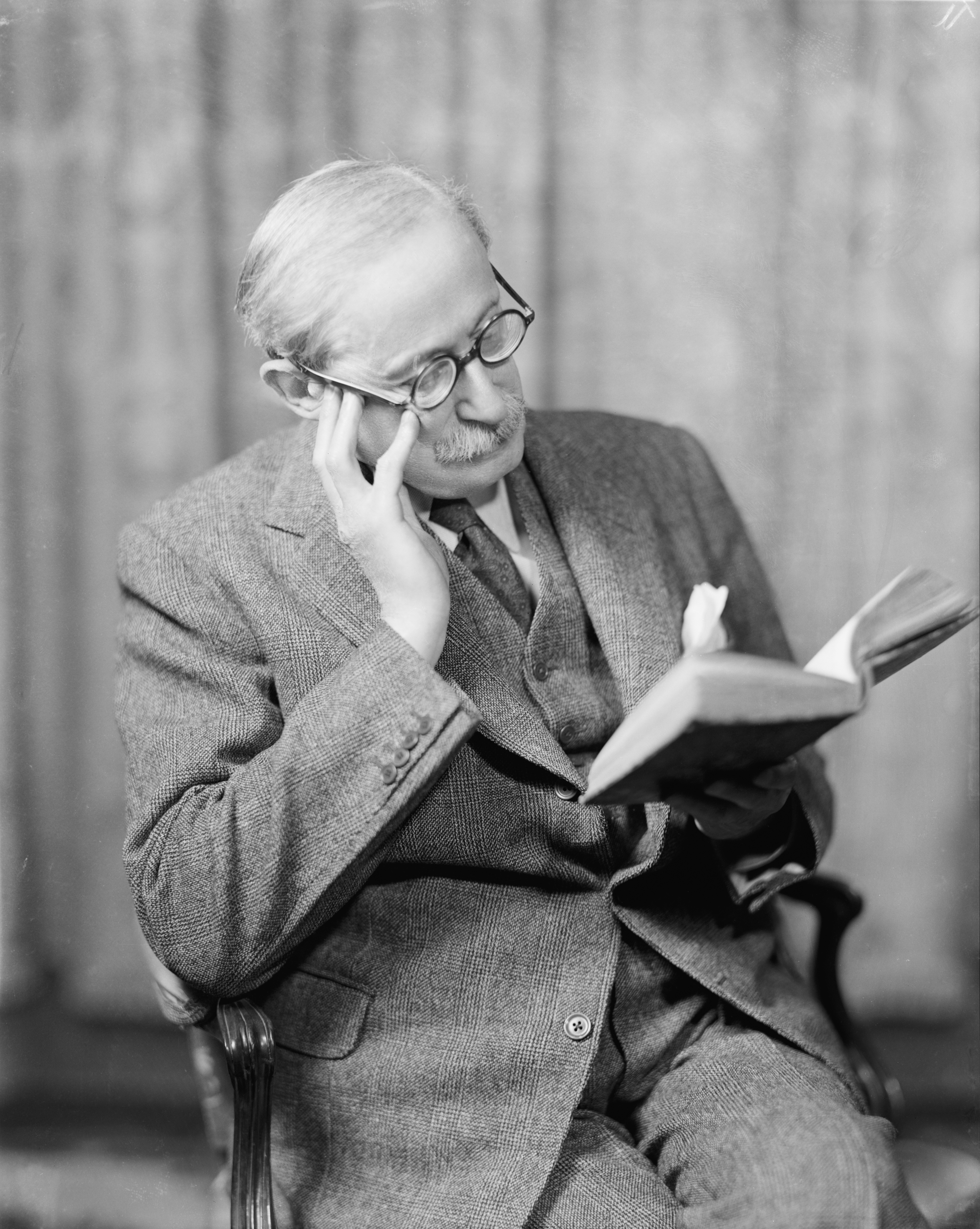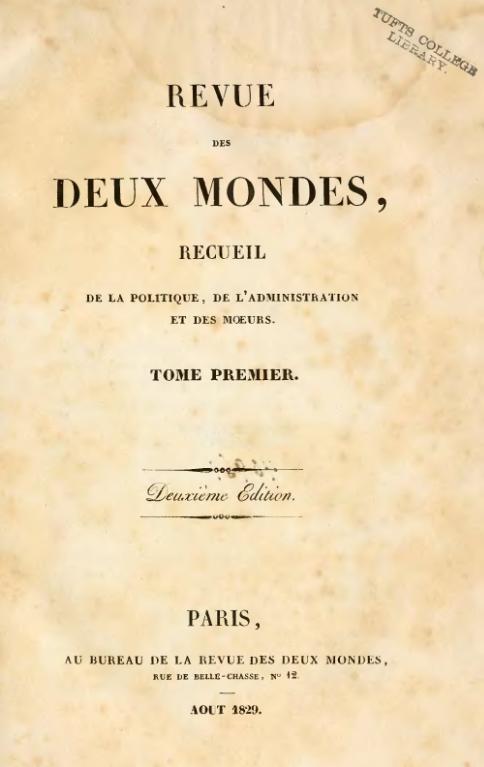|
Henry Bérenger
Henry Bérenger (22 April 1867 – 18 May 1952) was a French writer and politician who was an influential Senator from 1912 until 1945, sitting on committees on Finance and Foreign Affairs. He was France's ambassador to the United States from 1926 to 1927. Early years Henry Bérenger was born on 22 April 1867 in Rugles, Eure. He was educated at the college at Dinan, the Lycee of Coutances, the Lycée Henri-IV in Paris and the Sorbonne, where he obtained a B.A. He won an open competition in philosophy. In 1891 Bérenger published a noted study of Lavisse. In the 1890s he published poems inspired by Gabriele D'Annunzio in the journals ''l'Ermitage'' and ''La Conque''. He was leader of a group called "Art and Life" that discussed subjects like symbolism, free thought, spirituality and socialism. He published several books, wrote in ''La Dépêche de Toulouse'', and in 1903 founded the journal ''L'Action''. He soon left ''L'Action'' and became in turn director of ''Le Siècle'' (19 ... [...More Info...] [...Related Items...] OR: [Wikipedia] [Google] [Baidu] |
List Of Senators Of Guadeloupe
Following is a List of senators of Guadeloupe, people who have represented the department of Guadeloupe in the Senate (France), Senate of France. Third Republic Fourth Republic The French Fourth Republic, Fourth Republic lasted from 1946 to 1958. Fifth Republic References {{Lists of senators of France Senators of Guadeloupe, Lists of members of the Senate (France) by department, Guadeloupe Guadeloupe-related lists, Senators ... [...More Info...] [...Related Items...] OR: [Wikipedia] [Google] [Baidu] |
Alexandre Millerand
Alexandre Millerand (; – ) was a French politician. He was Prime Minister of France from 20 January to 23 September 1920 and President of France from 23 September 1920 to 11 June 1924. His participation in Waldeck-Rousseau's cabinet at the start of the 20th century, alongside the Marquis de Galliffet, who had directed the repression of the 1871 Paris Commune, sparked a debate in the French Section of the Workers' International (SFIO) and in the Second International about the participation of socialists in bourgeois governments. Biography Early life and religion Millerand was brought up in Paris, to Jean-François Millerand and Amélie-Mélanie Cahen of Alsatian Jewish origin, while his paternal family originated from Franche-Comté. Millerand was baptized in 1860, while his mother converted to Catholicism. However, Millerand later became an agnostic, even going as far as to participate in a civil marriage ceremony. He temporized later on letting his children being baptize ... [...More Info...] [...Related Items...] OR: [Wikipedia] [Google] [Baidu] |
Paul Rivet
Paul Rivet (7 May 1876, Wasigny, Ardennes – 21 March 1958) was a French ethnologist known for founding the Musée de l'Homme in 1937. In his professional work, Rivet is known for his theory that South America was originally populated in part by migrants who sailed there from Australia and Melanesia. He married Mercedes Andrade Chiriboga, who was from Cuenca, Ecuador. Early life and education Paul Rivet was born in Wasigny, Ardennes in 1876. He attended local schools and university, studying to be a physician. Career Trained as a physician, in 1901 he took part in the Second French Geodesic Mission for survey measurements of the length of a meridian arc to Ecuador. He remained for five years in South America, where he was mentored by Federico González Suárez, an Ecuadorian bishop, historian and archaeologist. Rivet became interested in the indigenous peoples, beginning an ethnographic study of the Huaorani people of the Ecuadorian Amazon, then known as the Jívaro. Whi ... [...More Info...] [...Related Items...] OR: [Wikipedia] [Google] [Baidu] |
Charles-André Julien
Charles-André Julien (2 September 1891 – 19 July 1991) was a French journalist and historian specialised in the history of the Maghreb, his most famous work is ''Histoire de l'Afrique du Nord : Des origines à 1830'' (History of North Africa from the origins to 1830). Charles-André Julien was born in Caen, northern France and emigrated with his family to Algeria (then under French occupation) at the age of 15, where he picked up an interest in the history of the region. Julien's History of North Africa served as the standard reference work on the subject for decades. His political commitments and specialized knowledge of North Africa contributed to his place on the Popular Front's Haut Comité méditerranéen et de l'Afrique du Nord from 1936 to 1939 and election to the Council of the French Union from 1946-1958. Julien opposed French colonialism, arguing that political rights should be extended to colonized subjects. Charles-André Julien taught at the Mohammed V Universit ... [...More Info...] [...Related Items...] OR: [Wikipedia] [Google] [Baidu] |
Paul Reynaud
Paul Reynaud (; 15 October 1878 – 21 September 1966) was a French politician and lawyer prominent in the interwar period, noted for his stances on economic liberalism and militant opposition to Germany. Reynaud opposed the Munich Agreement of September 1938, when France and the United Kingdom gave way before Hitler's proposals for the dismemberment of Czechoslovakia. After the outbreak of World War II Reynaud became the penultimate Prime Minister of the Third Republic in March 1940. He was also vice-president of the Democratic Republican Alliance center-right party. Reynaud was Prime Minister during the German defeat of France in May and June 1940; he persistently refused to support an armistice with Germany, as premier in June 1940, he unsuccessfully attempted to save France from German occupation in World War II, and resigned on 16 June. After unsuccessfully attempting to flee France, he was arrested by Philippe Petain's administration. Surrendering to German custody in 19 ... [...More Info...] [...Related Items...] OR: [Wikipedia] [Google] [Baidu] |
Théodore Steeg
Théodore Steeg () (19 December 1868 – 19 December 1950) was a lawyer and professor of philosophy who became Premier of the French Third Republic. Steeg entered French politics in 1904 as a radical socialist, although his views were generally moderate. He was a Deputy of the Seine from 1904 to 1914 and Senator from 1914 to 1944. At different times he was Minister of Higher Education, Interior, Justice and Colonies. In the 1920s he was in charge of the colonial administrations first of Algeria and then of Morocco. He encouraged irrigation projects to provide land for French ''colons'' at a time of growing demands for political and economic rights from the indigenous people, accompanied by growing unrest. Steeg was briefly prime minister in 1930–1931. Early years Jules Joseph Théodore Steeg was born in Libourne, Gironde on 19 December 1868. He was of German descent, and his political opponents would later attack him for this fact. His father, Jules Steeg (1836–1898), was ... [...More Info...] [...Related Items...] OR: [Wikipedia] [Google] [Baidu] |
Léon Blum
André Léon Blum (; 9 April 1872 – 30 March 1950) was a French socialist politician and three-time Prime Minister. As a Jew, he was heavily influenced by the Dreyfus affair of the late 19th century. He was a disciple of French Socialist leader Jean Jaurès and after Jaurès' assassination in 1914, became his successor. Despite his relatively short tenures, his time in office was very influential: as Prime Minister in the left-wing Popular Front government in 1936–37, he provided a series of major economic and social reforms. Blum declared neutrality in the Spanish Civil War (1936–1939) to avoid the civil conflict spilling over into France itself. Once out of office in 1938, he denounced the appeasement of Germany. When Germany defeated France in 1940, he became a staunch opponent of Vichy France. Tried (but never judged) by the Vichy government on charges of treason, he was imprisoned in the Buchenwald concentration camp. After the war, he resumed a transitional lea ... [...More Info...] [...Related Items...] OR: [Wikipedia] [Google] [Baidu] |
Spanish Civil War
The Spanish Civil War ( es, Guerra Civil Española)) or The Revolution ( es, La Revolución, link=no) among Nationalists, the Fourth Carlist War ( es, Cuarta Guerra Carlista, link=no) among Carlists, and The Rebellion ( es, La Rebelión, link=no) or The Uprising ( es, La Sublevación, link=no) among Republicans. was a civil war in Spain fought from 1936 to 1939 between the Republicans and the Nationalists. Republicans were loyal to the left-leaning Popular Front government of the Second Spanish Republic, and consisted of various socialist, communist, separatist, anarchist, and republican parties, some of which had opposed the government in the pre-war period. The opposing Nationalists were an alliance of Falangists, monarchists, conservatives, and traditionalists led by a military junta among whom General Francisco Franco quickly achieved a preponderant role. Due to the international political climate at the time, the war had many facets and was variously viewed as cla ... [...More Info...] [...Related Items...] OR: [Wikipedia] [Google] [Baidu] |
League Of Nations
The League of Nations (french: link=no, Société des Nations ) was the first worldwide intergovernmental organisation whose principal mission was to maintain world peace. It was founded on 10 January 1920 by the Paris Peace Conference that ended the First World War. The main organization ceased operations on 20 April 1946 but many of its components were relocated into the new United Nations. The League's primary goals were stated in its Covenant. They included preventing wars through collective security and disarmament and settling international disputes through negotiation and arbitration. Its other concerns included labour conditions, just treatment of native inhabitants, human and drug trafficking, the arms trade, global health, prisoners of war, and protection of minorities in Europe. The Covenant of the League of Nations was signed on 28 June 1919 as Part I of the Treaty of Versailles, and it became effective together with the rest of the Treaty on 10 January 1920. T ... [...More Info...] [...Related Items...] OR: [Wikipedia] [Google] [Baidu] |
Revue De Paris
''Revue de Paris'' was a French literary magazine founded in 1829 by Louis-Désiré Véron. After two years Veron left the magazine to head the Paris Opera The Paris Opera (, ) is the primary opera and ballet company of France. It was founded in 1669 by Louis XIV as the , and shortly thereafter was placed under the leadership of Jean-Baptiste Lully and officially renamed the , but continued to be .... The magazine ceased to be published in 1970. References External links WorldCat record 1829 establishments in France 1970 disestablishments in France Defunct literary magazines published in France French-language magazines Magazines established in 1829 Magazines disestablished in 1970 Magazines published in Paris {{France-lit-mag-stub ... [...More Info...] [...Related Items...] OR: [Wikipedia] [Google] [Baidu] |
Revue Des Deux Mondes
The ''Revue des deux Mondes'' (, ''Review of the Two Worlds'') is a monthly French-language literary, cultural and current affairs magazine that has been published in Paris since 1829. According to its website, "it is today the place for debates and dialogues between nations, disciplines and cultures, about the major subjects of our societies". The main shareholder is Marc Ladreit de Lacharrière's FIMALAC Group. History The ''Revue des deux Mondes'' was founded by Prosper Mauroy and Pierre de Ségur-Dupeyron, first appearing on 1 August 1829. It began when an anodyne periodical, ''Journal des voyages,'' was purchased by the young printer Auguste-Jean Auffray, who convinced his college roommate François Buloz to edit it. Its original emphasis on travel and foreign affairs soon shifted; according to its website, it was created to "establish a cultural, economic and political bridge between France and the United States", the Old World and the New. It was purchased in 1831 by Franço ... [...More Info...] [...Related Items...] OR: [Wikipedia] [Google] [Baidu] |
.jpg)



